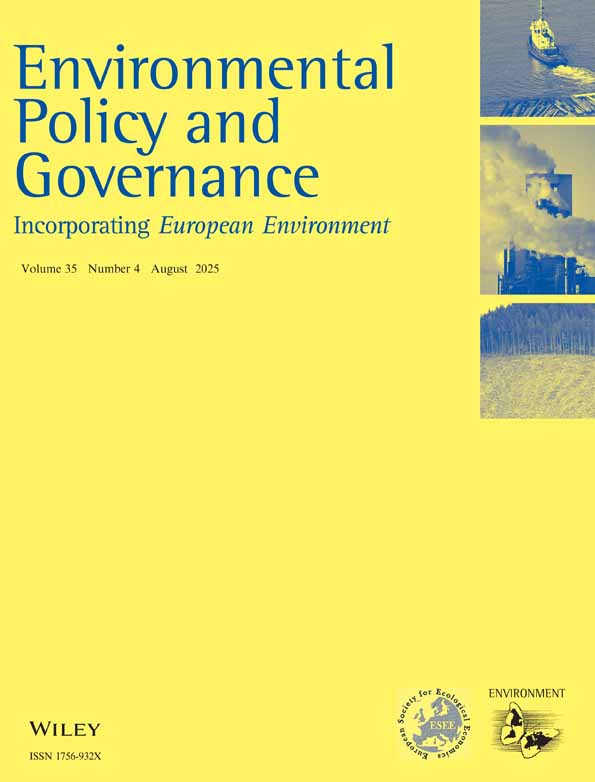The good government: cooperative environmental regulation in a comparative perspective
Abstract
On both the national and European levels, cooperation between state and society has developed considerably with regard to decision-making and regulatory enforcement, often with the explicit intention of raising the effectiveness and legitimacy of the regulatory practices. A number of instruments (e.g. voluntary agreements, joint implementation, environmental dispute resolution, legislative consultation and concertation procedures) have been developed and introduced, which seem to generalize and expand cooperation as a principle of environmental regulation altogether. The present paper aims to take up these developments by drawing a picture of ‘cooperative’ environmental regulation in Great Britain, France, Germany and the USA, the purpose being to delineate and compare national styles or patterns of cooperation. It is argued that each country has a proper way of organizing and moulding cooperation within public administration and between state and society. Moreover, each style of cooperation is linked to distinct working relationships, problem-solving approaches and strategies of validation and legitimization. In spite of these different traditions and styles, however, it will be argued that all countries are bringing about a less autonomous and more cooperative state. This general development, which is repeated on the European level as well, raises the need for a more strongly structured and transparent organization of cooperative relations between the state and society. Copyright © 2000 John Wiley & Sons, Ltd and ERP Environment




